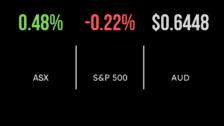Why you shouldn’t sweat China (much)
China’s ongoing regulatory crackdown has investors running scared. But China still wants to be a global player – and its most successful companies aren’t going anywhere.
China’s recent regulatory efforts have sent a chill down the spine of even the most bullish investors, with questions swirling about where and when the aggressive crackdown – which has soured the fortunes of Alibaba billionaire Jack Ma and sent shockwaves through the online education sector – would end. The answer is not anytime soon. But you probably shouldn’t sweat the long-term.
“For private sector companies this could have a short-term impact on profitability and higher compliance cost,” says Victor D. Kohn, Capital Group equity portfolio manager. “But it is also important to remember that China’s additional goals, which include control of data and self-reliance in technology, but also developing companies that have a global scale that can rival their peers in areas such as healthcare and technology, are going to mean that we are going to see the continued evolution of very successful companies in China.”
Kohn has been investing in emerging markets almost since the phrase “emerging markets” was coined – a time when overseas company reports were Xeroxed and mailed to him by local brokers and he was the first analyst that many of those companies had ever received – and he believes that China’s growing interest in biotechnology and healthcare is one of its most promising growth themes.
“Here you see both the supply and the demand sides. China’s population is ageing, and lifestyles, diet patterns and rising incomes means that demand is going to grow. On the supply side the government regulation has been very supportive and there is ample availability of venture capital money,” Kohn said.
“We like bio and pharma companies that have innovative products… of course, many of them are very young and in a developing stage, so we take a basket approach, and we look for companies that have strong management and a very strong research pipeline,” Kohn said.
Valeria Vine, Capital Group investment specialist, also noted the case of biotech company Legend, which successfully treated a patient suffering from a previously incurable form of blood cancer with an infusion of “edited t-cells”. Clinical trials of the treatment had a success rate of 94 per cent.
Another theme to watch is that old stalwart of the middle-class: travel. Vine notes that pre-Covid, 150 million people flew for the first time every year and that only about 20 per cent of the world’s population has ever been on an airplane. Travel is a secular growth theme, and one that will be supported by rising global incomes and pent-up demand from Covid-19 lockdowns; as Vine notes, Caribbean hotels are mostly booked out as the US reopens – despite the region being in the middle of its annual hurricane season.
“In the likes of China, the domestic portion of travel has recovered quite quickly… flights and hotel occupancies are pretty much back to where they were before Covid,” said Kohn. “The international travel is way down and that will take time to recover, but we continue to be very excited about companies that are focused on domestic and short-haul travel and that promises to be a sustained recovery.”
Accordingly, luxury spending – traditionally done on overseas trips – has been “repatriated” to the domestic market. While luxury goods wouldn’t seem to be a viable industry in a purportedly socialist nation (even when that socialism has “Chinese characteristics”), China’s burgeoning middle-class are just as intent on “Keeping up with Joneses” as their Western peers, accounting for 50 per cent of all luxury spending.
“There is certainly an impact on investor sentiment in the short-term, and over the longer-term we could see consumer tastes start to shift,” Vine said. “So less conspicuous branding for instance, or more spending on things like experiential luxuries – wine, travel – but this is kind of where it was going anyway, and you see companies like LVMH diversifying into other areas to benefit from the growth of experiential luxuries. So these periods of volatility could be buying opportunities.”











